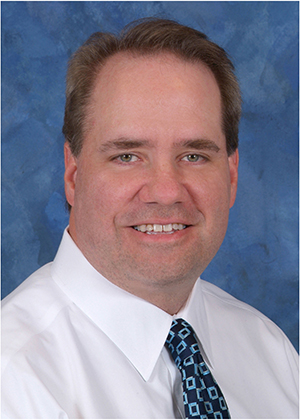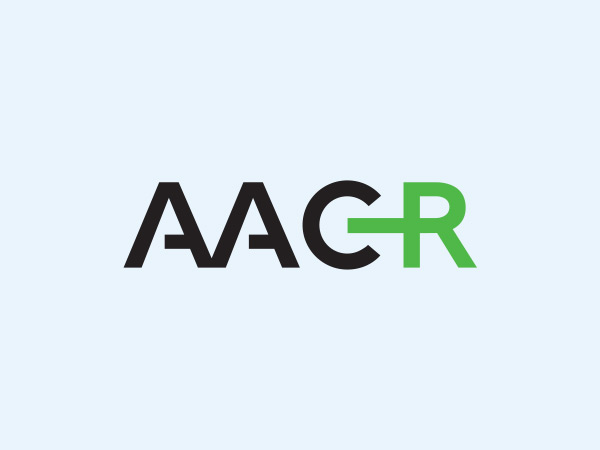Meet Scott Armstrong, MD, PhD, Program Chair of the 2016 AACR Annual Meeting
Editor’s Note: This is the first post in a series that will highlight AACR chairpersons involved in the 2016 AACR Annual Meeting. The posts will introduce you to these important AACR members, and give you insight into many facets of the meeting through their unique perspectives.
The following transcript of the video interview includes additional material and has been truncated and edited for clarity.
What does it mean to be the program chair of the AACR Annual Meeting?
It’s a tremendous honor… If you look at the list of people who have been program chairs in the past, these are some of the real leaders in the field of cancer biology. The other interesting and exciting thing about being the program chair is you really get to dig deeply into areas of cancer science that you don’t think about very much. [Take] the field of immunotherapy for example, my lab does not work on immunotherapy, but it is really changing how patients are treated [for] various types of cancer. Getting to learn more details about both the science behind that and the clinical trials has been fascinating.
The theme for this year’s Annual Meeting is “delivering cures through cancer science.” Why was this theme chosen?
We wanted the theme of the Annual Meeting to really highlight what the AACR and cancer research today is all about, and that is taking fundamental science discoveries, coming up with new therapies based on those discoveries, and moving them into clinical assessment, and ultimately to make a difference for patients. The Annual Meeting will cover all of those aspects and it really is exciting that today we can say with certainty that the discoveries that have been made over the past 15 years are making a difference for patients with cancer – you will see many examples of that in the clinical trials symposia that will be at the Annual Meeting this year.
Give us a preview of the “hot” cancer science you think we’ll hear at this year’s meeting.
[This year’s meeting will] focus on a number of new technologies [including] the [genome-editing tool] CRISPR and how that’s changing how we do cancer research. We’ll also [focus] on cancer metabolism, another very new area in terms of how recently we’ve come to understand how tumors have a different type of metabolism than most other cell types. We will be focusing on how that might be used therapeutically.
Are there some key breakthroughs discussed at the meeting that will be relevant to patients in the near future?
Breakthroughs in immunotherapy are making a difference today and will continue to make a difference [for cancer patients]. The remarkable responses seen in patients with various types of cancer through the use of different types of immunotherapy will continue to be highlighted at this year’s meeting. A number of new small-molecule drugs developed in the past few years—some of which are still in development and those that are now in clinical trials—will also be discussed.
Let’s talk a little bit about young researchers. Why is it especially important for early career researchers to attend the Annual Meeting?
The AACR Annual Meeting provides many opportunities for young researchers, the first of which is the opportunity to interact with senior scientists. Also, I think it’s important for young researchers to get a grasp of the breadth of research that is going on in cancer science at the moment. It really spans from metabolism to chromatin biology to immunotherapy, and there are tremendous breakthroughs going on in all of these arenas. It really is energy you can feel at the meeting, and I would be very surprised if any young scientist comes to the meeting and doesn’t leave with some new area that they are excited about.
In what year did you first attend an AACR Annual Meeting, and can you share a memory from it?
I do remember my first meeting… It was in 2003, so about 13 years ago, and the thing that I was most amazed by is the breath of basic science all the way from disease-oriented basic mechanisms all the way back to fundamental signaling. I really had never seen a meeting like that where you could go into one session and hear the world’s expert on RAS, go into the next session and hear the world’s expert on sarcoma, and go into the next session and hear the world’s expert on some fundamental aspect of cell biology, all of which were focused on cancer.
Scott Armstrong, MD, PhD, is program chair of the 2016 AACR Annual Meeting, director of the Center for Epigenetics Research and vice chair of Pediatrics at Memorial Sloan Kettering Cancer Center. Armstrong is a physician-scientist in the fields of cancer epigenetics and stem cell biology with a focus on leukemia. His findings have pointed to potential new therapies for leukemia. Armstrong obtained his MD and PhD degrees from the University of Texas Southwestern Medical School under the supervision of Nobel Laureates Joseph Goldstein and Michael Brown. He completed an internship and residency at Boston Children’s Hospital and clinical and research fellowships at the Dana-Farber Cancer Institute and Harvard Medical School with Stanley Korsmeyer, MD.




